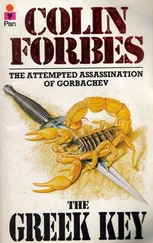Colleen McCullough - 2. The Grass Crown
Здесь есть возможность читать онлайн «Colleen McCullough - 2. The Grass Crown» весь текст электронной книги совершенно бесплатно (целиком полную версию без сокращений). В некоторых случаях можно слушать аудио, скачать через торрент в формате fb2 и присутствует краткое содержание. Жанр: Современная проза. Описание произведения, (предисловие) а так же отзывы посетителей доступны на портале библиотеки ЛибКат.
- Название:2. The Grass Crown
- Автор:
- Жанр:
- Год:неизвестен
- ISBN:нет данных
- Рейтинг книги:5 / 5. Голосов: 1
-
Избранное:Добавить в избранное
- Отзывы:
-
Ваша оценка:
- 100
- 1
- 2
- 3
- 4
- 5
2. The Grass Crown: краткое содержание, описание и аннотация
Предлагаем к чтению аннотацию, описание, краткое содержание или предисловие (зависит от того, что написал сам автор книги «2. The Grass Crown»). Если вы не нашли необходимую информацию о книге — напишите в комментариях, мы постараемся отыскать её.
2. The Grass Crown — читать онлайн бесплатно полную книгу (весь текст) целиком
Ниже представлен текст книги, разбитый по страницам. Система сохранения места последней прочитанной страницы, позволяет с удобством читать онлайн бесплатно книгу «2. The Grass Crown», без необходимости каждый раз заново искать на чём Вы остановились. Поставьте закладку, и сможете в любой момент перейти на страницу, на которой закончили чтение.
Интервал:
Закладка:
5
Scant days before the end of that year Livia Drusa gave birth to a boy, Marcus Porcius Cato Salonianus Junior a skinny, screeching baby with the Catonian red hair, a long neck, and a nose which sat in the middle of his homely newborn face like a huge hooked beak, utterly inappropriate. He had presented as a footling breech and refused to co-operate, with the result that his emergence into the world was arduously long, his mother both cut and torn by the time the midwives and doctors extricated him from the birth canal. "But, domina," said Apollodorus Siculus, "he is quite without harm no bruises, no swellings, no blueness." A slight smile crossed the little Greek physician's face. "If his behavior at birth is anything to go by, domina, be warned! He will grow up to be a difficult man." Too exhausted to do more than smile wanly, Livia Drusa found herself hoping she would have no more children; this was the first time she had suffered enough during labor to feel negative afterward. It was some days before her other children were permitted to see her, days during which Cratippus was obliged to administer the household unaided, as Livia Drusa was now its mistress. Servilia predictably came no further than the door, refusing to acknowledge her new half brother. Lilla sternly indoctrinated these days by her elder sister tried to stay aloof, but succumbed to her mother's coaxing and ended in kissing the thin, wriggling mite tucked into Livia Drusa's arm. Porcia called Porcella was too young at fourteen months to be invited to this puerperal visit, but Young Caepio, now turned three, was. His reaction was ecstatic. He couldn't get enough of this new baby brother, demanding to hold him, to cuddle him, to kiss him. "He's going to be mine," said Young Caepio, digging his heels in as his nursemaid attempted to drag him away. "I give him to you, little Quintus," said Livia Drusa, enormously grateful that one of Young Cato's siblings had taken to him wholeheartedly. "You shall have full charge of him." Though she hadn't come into the room, Servilia lingered in the doorway until Lilla and Young Caepio. were removed, then edged just a few feet closer to the bed. Her eyes rested upon her mother derisively, her sore spirit finding satisfaction in Livia Drusa's haggard face, weary look. "You're going to die," Servilia said, looking smug. Livia Drusa's breath caught. "Nonsense!" she said sharply. "You will die," the ten-year-old insisted. "I have wished it to happen, so it will. It did to Aunt Servilia Caepionis when I wished her dead!" "To say things like that is as silly as it is unkind," said the mother, heart knocking frantically. "Wishes cannot make things happen, Servilia. If they do happen and you have wished, it is a coincidence, no more. Fate and Fortune are responsible, not you! You are just not important enough to engage the attention of Fate and Fortune." "It's no use, you can't convince me! I have the Evil Eye! When I ill-wish people, they die," said the child gleefully, and disappeared. Livia Drusa lay silent, eyes closed. She didn't feel well; she hadn't felt well since Young Cato was born. Yet believe that Servilia was responsible, she could not. Or so she told herself. But over the next few days, Livia Drusa's condition deteriorated alarmingly. A wet-nurse had to be found for Young Cato, who was removed from his mother's room, whereupon Young Caepio pounced and took charge of him. Apollodorus Siculus clucked. "I fear for her life, Marcus Livius," he said to Drusus. "The bleeding is not profuse, but it is remorseless, and nothing seems to help. She has a fever, and there is a foul discharge mixed with the blood." "Oh, what is the matter with my life?" cried Drusus, rubbing the tears out of his eyes. “Why is everyone dying?'' A question of course that could not be answered; nor did Drusus take credence of Servilia's ill-wishing when Cratippus, who loathed the child, reported it to him. Nevertheless, Livia Drusa's condition continued to deteriorate. The worst thing, thought Drusus, was that there was no other woman in the house of higher status than slaves. Cato Salonianus was with his wife as much as possible, but Servilia had to be kept away, and it seemed to both Drusus and Cato that Livia Drusa looked for something or someone who was not there. Servilia Caepionis, probably. Drusus wept. And made up his mind what to do. On the following day he went to visit a house into which he had never stepped; the house of Mamercus Aemilius Lepidus Livianus. His brother. Though his father had told him Mamercus was no son of his. So long ago! Would he be received? "I want to speak to Cornelia Scipionis," he said. The door warden, whose mouth had been open to say that the master of the house was not home, shut it, nodded instead. Drusus was conducted to the atrium, and there waited a short time. He literally did not recognize the elderly woman who stumped in, grey hair pulled back in an unflattering bun, clothes drab and chosen without regard for color schemes, body stout, face scrubbed and rather ugly; she looked, he thought, very like the busts of Scipio Africanus which dotted the Forum. Which was not surprising, given that she was closely related to him. "Marcus Livius?" she asked in a lovely mellow deep voice. "Yes," he said, completely at a loss how to proceed. "How like your father you are!" she said, but without evidence of dislike. She sat down on the edge of a couch, and indicated a chair opposite. "Seat yourself, my son." "I suppose you're wondering what brings me here," he said, and felt a huge lump grow in his throat. His face worked, he struggled desperately to preserve his composure. "Something very serious," she said, "so much is obvious." "It's my sister. She's dying." A change came over her, she got immediately to her feet. "Then we have no time to waste, Marcus Livius. Let me only tell my daughter-in-law what's amiss, then we'll go." He didn't even know that she had a daughter-in-law; nor might she know his wife was dead. His brother Mamercus he knew slightly from seeing him around the Forum, but they never spoke; the ten years between them meant that Mamercus was not yet old enough to enter the Senate. But, it seemed, he was married. "You have a daughter-in-law," he said to his mother as they left the house. "Just recently," said Cornelia Scipionis, beautiful voice suddenly colorless. "Mamercus married one of the sisters of Appius Claudius Pulcher last year." "My wife died," he said abruptly. "Yes, I heard that. I'm sorry now I didn't come to see you. But I didn't honestly think I'd be a welcome face in time of grief, and I have a great deal of pride. Too much pride, I know." "I take it I was supposed to come to you." "Something like that." "I didn't think of it." Her face twisted. "That's understandable," she said evenly. "It's interesting that you'd climb down for the sake of your sister, but not for yourself.'' "That's the way of the world. Or our world, at any rate." "How long has my daughter got?" "We don't know. The doctors think very little time now, but she's fighting it. Yet she has some great fear too. I don't know what, or why. Romans are not afraid of dying." "Or so we tell ourselves, Marcus Livius. But beneath the show of fearlessness, there's always a terror of the unknown." "Death isn't an unknown." "Do you not think so? Perhaps it's rather that life is sweet." "Sometimes." She cleared her throat. "Can you not call me Mama?" "Why should I? You left home when I was just ten years old, and my sister five." "I couldn't live with that man a moment longer." "I'm not surprised," he said dryly. "He wasn't the sort of person to put up with a cuckoo in his nest." "Your brother Mamercus, you mean?" "Who else?" "He is your full brother, Marcus Livius." "That's what my sister keeps telling her daughter about her son," said Drusus. "But one look at Young Caepio is enough to tell the biggest fool whose son he really is." "Then I suggest you look more closely at Mamercus. He's a Livius Drusus to the life, not a Cornelius Scipio." She paused, added, "Or an Aemilius Lepidus." They had come to the house of Drusus. After the door warden admitted them, Cornelia Scipionis gazed about her in awe. "I never saw this house," she said. "Your father had truly wonderful taste." "It's a pity he didn't have a truly wonderful warmth," said Drusus bitterly. The mother glanced sideways at him, but said nothing.
Читать дальшеИнтервал:
Закладка:
Похожие книги на «2. The Grass Crown»
Представляем Вашему вниманию похожие книги на «2. The Grass Crown» списком для выбора. Мы отобрали схожую по названию и смыслу литературу в надежде предоставить читателям больше вариантов отыскать новые, интересные, ещё непрочитанные произведения.
Обсуждение, отзывы о книге «2. The Grass Crown» и просто собственные мнения читателей. Оставьте ваши комментарии, напишите, что Вы думаете о произведении, его смысле или главных героях. Укажите что конкретно понравилось, а что нет, и почему Вы так считаете.












